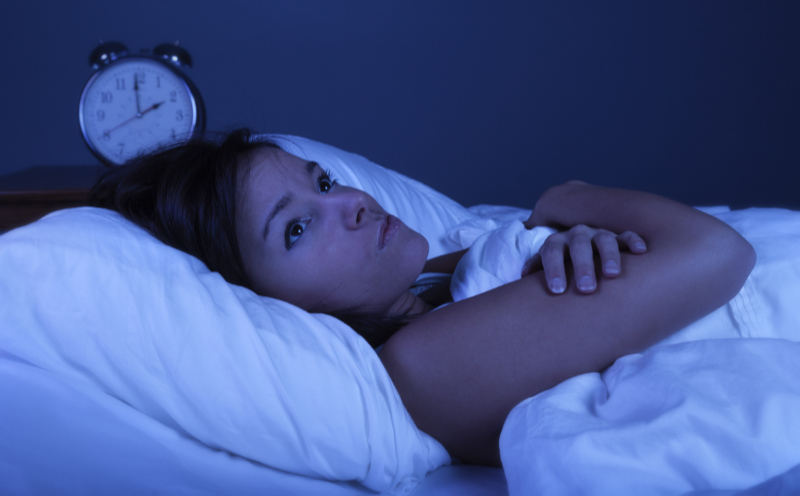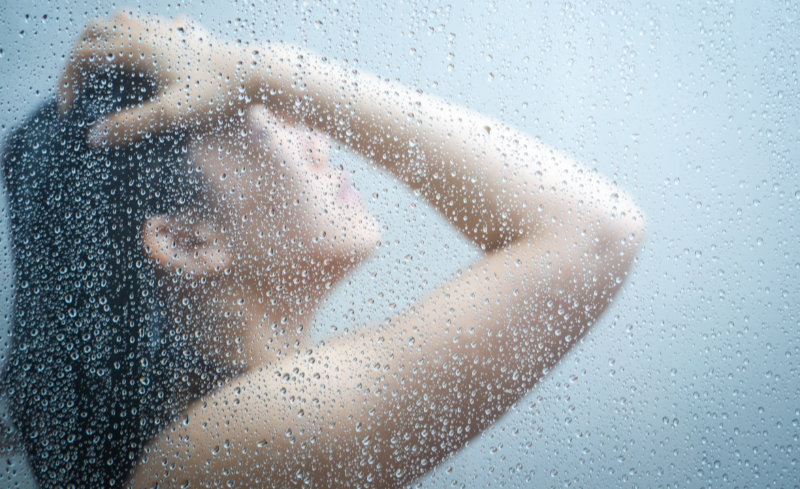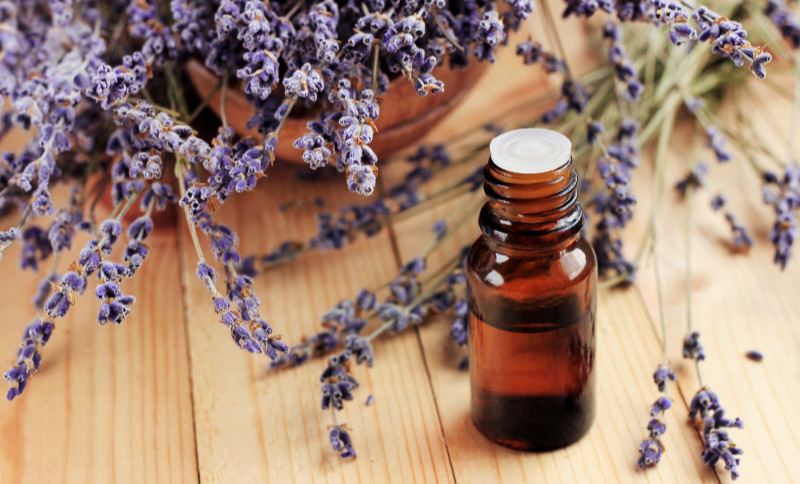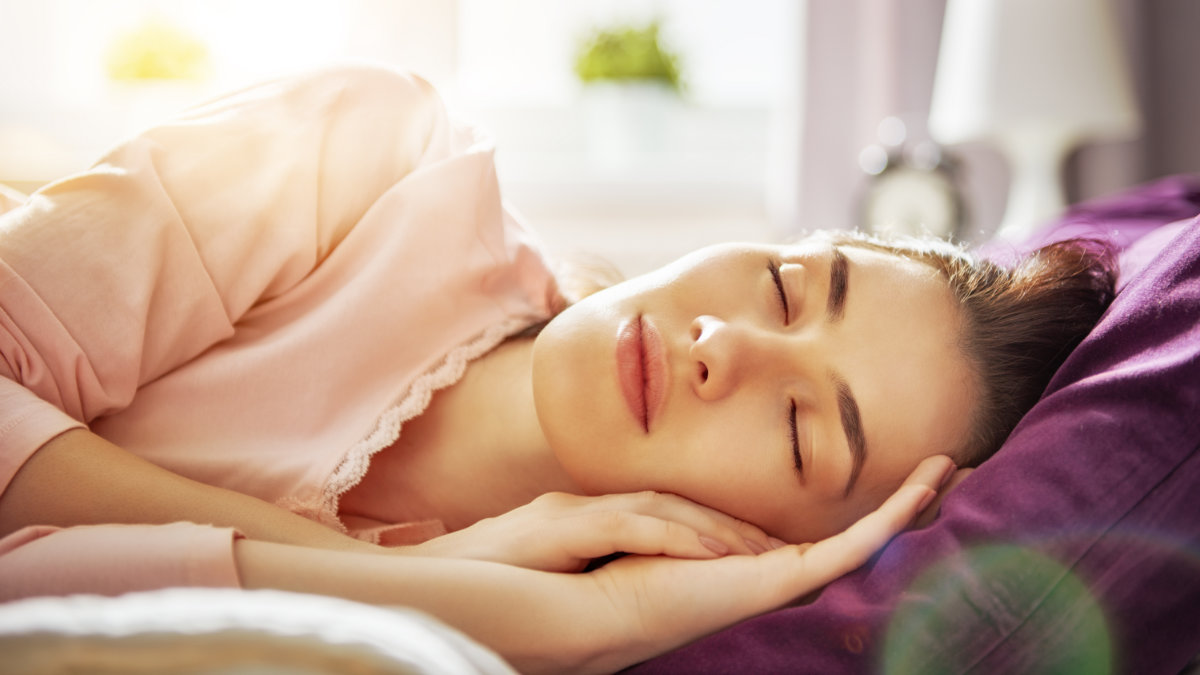Sleep problems can affect the best of us, and at any time and at any age. Struggling to fall asleep can be highly frustrating and can affect your mental and physical wellbeing. Lack of sleep affects our ability to function during the day and in the long term, insomnia may play a role in developing serious illnesses.
If you find yourself yelling ‘I can’t sleep’, don’t panic! There are lots of reason you may find it difficult to nod off into a deep slumber at night but there are plenty of things to try to help you sleep and overcome insomnia.

Can’t sleep? Stick to a schedule
The body loves routine. When our routine is disrupted or not consistent, it can lead to sleep problems such as insomnia or difficulty falling asleep in the first place. Lack of routine can mean we wake up feeling groggy, adding to feelings of tiredness.
The secret to a good night’s sleep is keeping to a regular routine – even at weekends.
This is down to the body’s circadian rhythm – the body’s internal system that regulates alertness during the day and tiredness in the evening and night.
Keeping to regular bedtimes and waking up at the same time helps this internal clock function effectively, and this positive feedback loop means our body clock is better at ensuring we feel tired and fall asleep.
Sticking to regular bedtimes and waking at the same time even applies at weekends. It is better to continue to wake at, say, 7am at the weekend and skip sleeping in. Sleeping in disrupts our body clock and the same with staying up late.
Aim to sleep around eight hours each night, and factor in around half-an-hour to unwind before going to bed, switching off devices and removing stimulus such as TV shows.
An old military trick could banish ‘I can’t sleep’ complaints
The US military claims to have developed a technique that helps you fall asleep in as little as two minutes!
First appearing the 1981 book Relax and Win: Championship Performance, the US Navy reportedly use the technique to help pilots fall asleep quickly, even in stressful situations. The secret is down to concentrating on your breathing and entering a state akin to meditation.
Here’s how to fall asleep quickly the military way:
Start by breathing slowly and deeply, concentrating on relaxing the muscles in your face and releasing tension in your jaw and around your eyes.
Continue to breathe but start to concentrate on relaxing your body. Start by dropping your shoulders as low as they’ll go, followed by your upper and lower arm, one side at a time.
Next, spread the relaxation to your chest, followed by your legs beginning with the thighs and working down.
Once your body is fully relaxed, take time to clear your mind. Then do one of the following:
- Picture yourself lying in a canoe on a calm lake with a clear blue sky above you;
- Picture yourself lying in a black velvet hammock in a pitch-black room; or
- Say “don’t think, don’t think, don’t think” over and over again for 10 seconds.
According to the book, the technique is said to work for 96 per cent of people after six weeks of practice.
Try the 4-7-8 breathing technique
Similar to the military trick to fall asleep, the 4-7-8 method is a breathing exercise that can help relax your body and increase oxygen flow to the body. Practitioners claim that the technique, developed in the US by Dr Andrew Weil, can induce sleep in less than one minute and banish the ‘I can’t sleep’ blues.
The 4-7-8 breathing technique is straightforward. Lying on your bed, take a deep breath in and inhale through your nose, filling your lungs with air. Next, hold your breath for seven seconds (count ‘one Mississippi, two Mississippi’ to you get to seven) and then breath out through your mouth for a count of eight seconds. Continue to breathe slowly in this way until you fall asleep.
From bananas and oats to honey and milk, discover seven foods that can help you overcome insomnia in our guide Banana before bed? Seven foods to aid sleep.
Try to stay awake to banish ‘I can’t sleep’ complaints
If you can’t sleep, then research suggests that it might be best to not fight it at all. Known as the ‘paradoxical intention’, studies have found that trying to stay awake and not worrying about falling asleep can actually help us fall asleep quicker. A recent study found that people who don’t fight not being able to sleep oddly tend to fall asleep faster than those who actively try to fall asleep.
Research at the University of Glasgow seems to validate the thinking. Its study in the paradoxical intention found the harder you try to get to sleep, the more difficult it is. Researchers tested participants who tried to keep awake with their eyes open actually fell asleep faster than those who tried to fall asleep with their eyes closed.
Avoid using electronic devices
It’s tempting to check mobile phones, watch late-night TV or read a book on a tablet – but using any electronic devices before bed can prevent you from sleeping. This is because device screens can be a source of blue light, with disrupts our ability to produce melatonin – a vital hormone that helps us fall asleep. So, the best advice is to stop texting before bed – even ‘I can’t sleep’ pleas to text buddies – and switch off from using electronic devices an hour before going to bed.
Some modern smartphones and tablets, such as Apple’s iPhone, have specific night time settings that change the colour of the screen to decrease the amount of blue light, reduce the screen’s effect on melatonin. Look for settings such as ‘Nightshift’ on an iPhone.
Take a warm shower to help fall asleep
Many people swear that taking a warm shower before going to bed can help you fall asleep quickly – and studies show they may only be half right. Studies have found that taking a hot shower and then stepping out of the shower into colder air has the effect of putting the brakes on your metabolism, rapidly slowing it and sending signals that help your body prepare for sleep. Showers are also relaxing, and if you make it part of your nightly routine before going to bed it can help your body clock work more effectively.

Can’t sleep? Keep your cool!
If your room is too hot, or you’re sweltering under a heavy duvet or blankets, then you may simply be too warm to fall asleep. When we sleep, our body temperature falls, with it reaching its coolest between 2am and 4am. Too warm a room, and you can have trouble falling asleep. That’s because a lower body temperature is important for sleep, slowing both digestion and heart rate. Aim for a room temperature of between 15oC and 23oC to get the best chance of falling asleep.
Keep your socks (and gloves) on to quickly fall asleep
While it’s important to keep your room cool at night to aid getting to sleep quickly, the same rule doesn’t apply for fingers and toes. Research has found that cold feet and hands can prevent you from quickly falling asleep. A study by the Sleep Laboratory in Basel found that people tend to fall asleep more easily if their feet and hands are warmer than the temperature of the air in the room. It seems that cold hands and feet keep us awake so, if you can’t sleep, it might be time to reach for the socks and gloves.
Scent your room with lavender
The herb Lavender has qualities that can help you fall asleep quickly and improve sleep quality as well. Plenty of studies show that lavender oil reduces blood pressure and can help you relax. Research by Wesleyan University studied participants who sniffed lavender oil several times before heading to bed and found that they slept deeper and woke feeling more refreshed. Lavender is readily available, and you can place an essential oil diffuser in your bedroom or add lavender scent to your pillow.

Listen to music before going to bed
While it may seem counterintuitive to listen to music before trying to sleep, listening to the right kind of music can help you fall asleep more easily. However, you’ll need to be selective about the type of music – and unsurprisingly punk and heavy metal won’t have the right effect. A 2008 study found that people who listened to classical music before going to bed reported better sleep quality. It’s likely to do with the slower rhythm. Look for relaxing music that has 60 to 80 beats per minute to get the maximum effect.
Don’t let the menopause cause sleepless nights. Read our guide to Menopause supplements: 10 supplements to relieve symptoms.
Acupressure may help aid a restful night
The ancient Chinese technique of acupressure is believed by practitioners to help banish insomnia. It is based on the belief that acupressure puts pressure on key points that correlate to a network of energy flowing through the body. By pressing on these points, the energy flow is rebalanced, with mind and body more relaxed. The good news is acupressure is straightforward, so if you find yourself saying ‘I can’t sleep!’ then try the following:
- Directly above your nose and located between your eyebrows is an acupressure point – look for the small depression level with your eyebrows. Using a finger or thumb, apply gentle pressure and count to 60.
- Mentally divide your foot into three areas, with the front third including your toes and the back third including your heel. Using your hands, find the point on your foot that is one-third back from your toes and apply pressure with your fingers on the sole of your foot. Keep pressure applied for a few minutes.
- Still with your feet, look for a small depression that is located between the big toe and second toe on top of the foot. With your fingers, press into the depression firmly for a few minutes stopping once you experience a dull ache in the area.
- Finally, with both hands massage around your ears, working from the top of your ears and down to the ear lopes, then back up again.
Dunk your face in cold water
Disrupting negative thinking, stress and anxiety can help you fall asleep. Dunking your face in cold water – and it has to be really cold water – acts to jolt your body out of its negative state, forcing your nervous to effectively reset itself. It’s all down to the Mammalian Dive Reflect which slows the heart rate and reduces blood pressure. Dunking your face for 30 seconds in a bowl of very cold water stimulates the vagus nerve in your face – part of the parasympathetic nervous system – and works to calm you down when it gets cold.
Still can’t sleep? Masturbate or have sex (or both)
Sleeplessness and insomnia could be the perfect excuse for having sex or masturbating. Studies have found that having sex before sleeping can be especially beneficial in helping get to sleep – especially if you have an orgasm.
There’s good science behind the thinking, too. Research carried out by Central Queensland University surveyed over 450 adults and found that just over two-thirds (64%) reported improved sleep quality after having sex and had orgasmed.
When we have sex, endorphins and dopamine are released into the body, aiding relaxation. Orgasms release oxytocin, which may act as a natural sedative, helping us fall asleep quickly.
































































